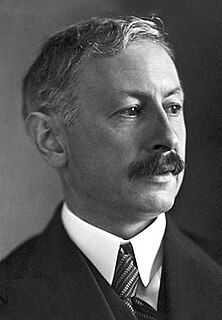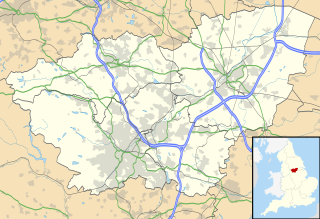Akzo Nobel N.V., trading as AkzoNobel, is a Dutch multinational company which creates paints and performance coatings for both industry and consumers worldwide. Headquartered in Amsterdam, the company has activities in more than 80 countries, and employs approximately 46,000 people. Sales in 2016 were EUR 14.2 billion. Following the acquisition of ICI, the company restructured on 2 January 2008, and rebranded itself on 25 April of the same year.

Professor Paul Karrer FRS FRSE FCS was a Swiss organic chemist best known for his research on vitamins. He and Norman Haworth won the Nobel Prize for Chemistry in 1937.

Sir John Harvey-Jones MBE was an English businessman. He was the chairman of Imperial Chemical Industries from 1982 to 1987. He was best known by the public for his BBC television show, Troubleshooter, in which he advised struggling businesses.
Charles Walter Suckling was a British chemist who first synthesised halothane, a volatile inhalational anaesthetic in 1951, while working at the Imperial Chemical Industries (ICI) Central Laboratory in Widnes.

Sir Max Muspratt, 1st Baronet was a British chemist and a politician in the city of Liverpool, England.
Leslie Howard Silver, OBE was a British executive who was chairman of Leeds United football club and chancellor of Leeds Metropolitan University. He was the founder of Silver Paint and Lacquer, later known as Kalon Group PLC, from which he retired in 1991.

Ferdinand Hurter was a Swiss industrial chemist who settled in England. He also carried out research into photography.
Peter George Beazley was a British businessman and Conservative Party politician, who worked for Imperial Chemical Industries for over thirty years. He went on to serve for fifteen years as a Member of the European Parliament (MEP).
Harry Duncan McGowan, 1st Baron McGowan KBE LLD DCL, was a prominent British industrialist who served as Chairman of Imperial Chemical Industries for 20 years.

James Hargreaves was a British chemist and an inventor. He was born at Hoarstones, Pendle Forest, Lancashire, the eldest child of James Hargreaves, a schoolmaster at Slaithwaite near Marsden. His father moved to Sabden but as he found his salary to be insufficient he became a druggist in 1844, later moving to Preston.
Sir David Ronald Zeidler was an Australian chemist and industrialist.

Sir Michael Willcox Perrin was a scientist who created the first practical polythene, directed the first British atomic bomb programme, and participated in the Allied intelligence of the Nazi atomic bomb.
Sir George Christopher Clayton was a British scientist, industrialist and Conservative politician.
Sir Joseph Robert Archibald Glenn, OBE was an Australian industrialist and founding Chancellor of La Trobe University.
Sir John Ivan George Cadogan is a British organic chemist.

Glidden is a paint brand manufactured by PPG Industries, one of the largest global coatings companies, and sold at The Home Depot, Walmart, independent paint dealers and on Amazon.

Sir Wallace Alan Akers was a British chemist and industrialist. Beginning his academic career at Oxford he specialized in physical chemistry. During the Second World War, he was the director of the Tube Alloys project, a clandestine programme aiming to research and develop British atomic weapons capabilities, from 1941 to 1945. After the war he was director of research at Imperial Chemical Industries. He also served as a member of the Advisory Council of the Department of Scientific and Industrial Research, and the committee that drew up the organisation of what became the United Kingdom Atomic Energy Authority. He died in 1954 at the age of 66.
Francis Arthur Freeth was a British industrial chemist. He spent much of his career at Brunner Mond and its successor Imperial Chemical Industries, as chief chemist, research manager and in a recruiting capacity, with particular knowledge of phase rule chemistry, and developed many processes related to the manufacture of explosives. He made a critical contribution to the British World War I effort by devising new ways to manufacture ammonium nitrate, which was recognised with an honour, and a smaller contribution in World War II for the Special Operations Executive. Freeth created links between Brunner Mond and Dutch chemistry, particularly at the University of Leiden where he met Kammerlingh Onnes and was awarded a doctorate.
Dr Cecil John Turrell Cronshaw FRSE DSc was a British industrial chemist, Manager of the Manchester Ship Canal and Director of the chemical giant, ICI. He was involved in the evolution of modern industrial dyes.















